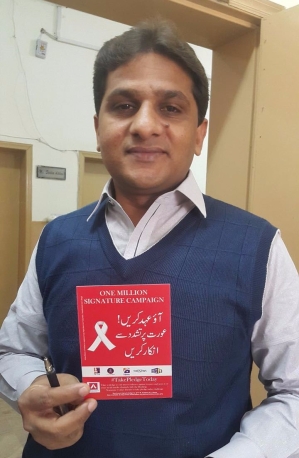I wrote this piece for a web dossier produced by Heinrich Boell Foundation for the Universal Declaration of Human Rights‘ 70th anniversary 2018 – Asma Jahangir – ein bedeutungsvolles Leben, ein inspirierendes Erbe. Sharing now, a year after Asma Jahangir has passed on. This piece doesn’t include her role for peace in the region and in the UN system that I’ve written about earlier and also detailed in a longer essay to be printed in an anthology titled Voices of Freedom from Asia and the Middle East, co-edited by Mark Dennis and Rima Abunasser, TCU, is under publication by SUNY Press. Above: Asma Jahangir at her office; still from my documentary Mukhtiar Mai: The struggle for justice (2006)
By Beena Sarwar
The field on the outskirts of Lahore was full of workers waiting to hear the woman from the city speak. They squatted on their haunches with dull hopeless eyes, the drab greys and browns of their clothes at one with the earth they fashioned into bricks to bake in bhattas — kilns that dot the rural landscape of Punjab and upper Sindh. For their back-breaking labour they were paid in kind, leading to generations of indebtedness as the traditional informal economy transitioned into a cash-based system.

Brick kiln workers, Pakistan. Photo: Shehryar Warraich/News Lens, 2015
Filed under: Freedom of expression, Gender, History, Human rights, Pakistan, Violence in the name of religion | Tagged: Activism, Asma Jahangir, blasphemy, blasphemy law, bonded labour, forced disappearances, forced marriage, rule of law, UDHR, women | 4 Comments »



 London Declaration for Pluralism and Democracy in Pakistan
London Declaration for Pluralism and Democracy in Pakistan




